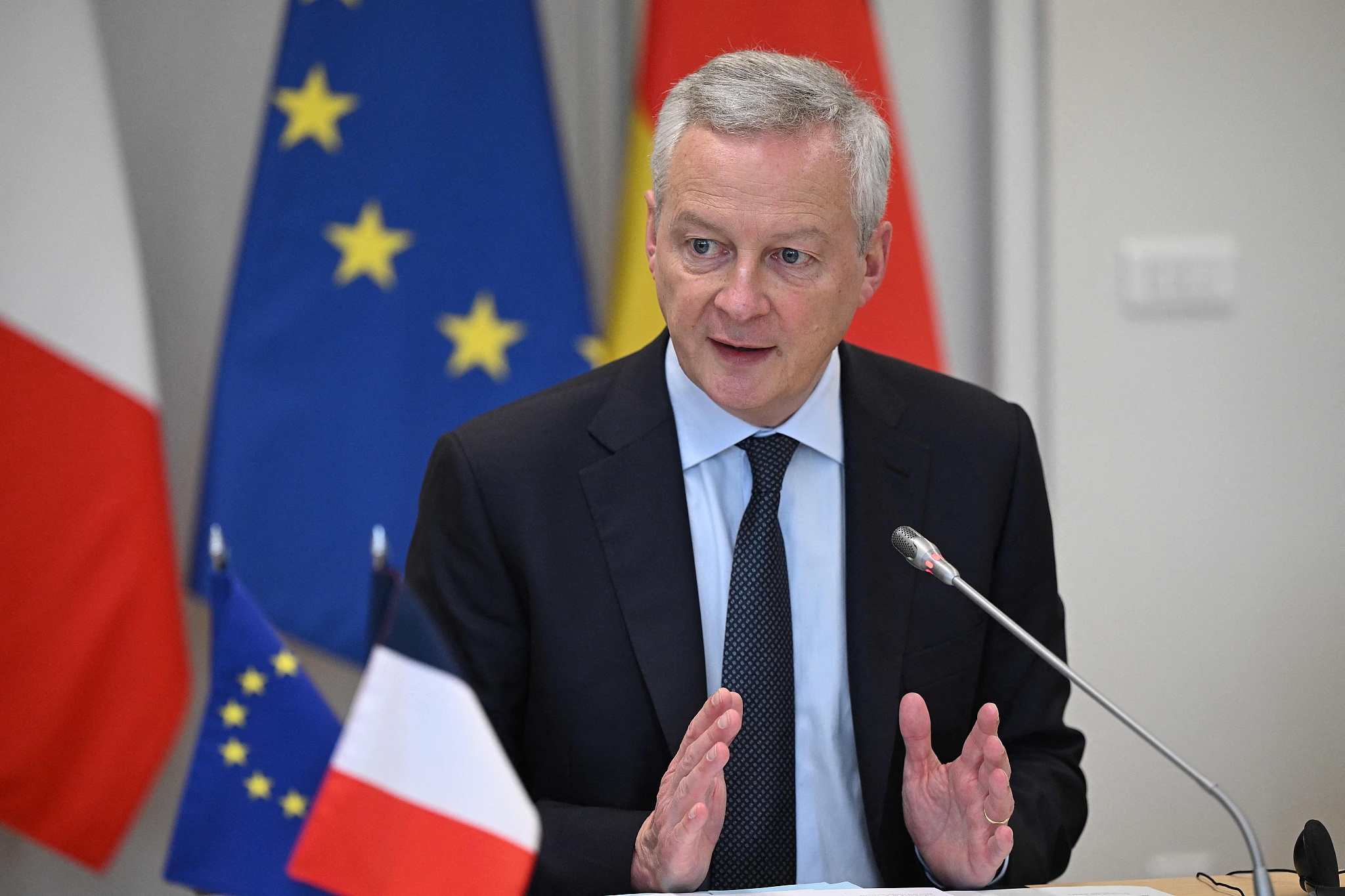Does France welcome Chinese electric cars?
- 27 August, 2024
France is showing two faces towards Chinese electric vehicles.
"France welcomes all industrial projects. BYD and the Chinese auto industry are very popular in France. We would be happy if BYD wanted to build a factory in France," French Finance Minister Bruno Le Maire said at a high-level auto industry meeting recently.
In response to this statement, Asia Financial magazine commented: This may make European automakers and politicians in Brussels uneasy, because they are worried that Chinese electric vehicles may dominate the French and even European markets in the coming years. They are cheap and leading in electric technology. It is true that Chinese electric vehicles are technologically advanced, but if you pay close attention to Europe's actions on Chinese electric vehicles over the long term, you will not have such "concerns" because they have always liked to "change with the wind."

French Finance Minister Bruno Le Maire
Two days before Le Maire made the remarks at the beginning of the article, he said on another occasion: "The automotive industry is part of our industrial culture and is facing a once-in-a-century change. Our transformation is difficult due to fierce competition from other countries, especially China, so we need the unity of the industry. Europe must adopt a trade policy to protect our industry, jobs and technology."
In fact, in order to curb the development of Chinese electric vehicles in the local area, Europe has already carried out a series of offensive and defensive deployments.
For example, the European Commission launched an anti-subsidy investigation against Chinese electric vehicles in September last year to protect European car companies from importing cheap electric vehicles from China. They have always believed that Chinese electric vehicles cannot be so cheap by themselves, and must be because they have received state subsidies.
The China Chamber of Commerce for Import and Export of Machinery and Electronic Products (CCCME) has been handling the case on behalf of 12 Chinese electric vehicle companies and held a hearing with the European Commission in mid-April. It is reported that the anti-subsidy investigation will be concluded in a few weeks. By then, the EU will have a conclusion on whether to increase the import tax rate on Chinese electric vehicles.
Among EU countries, France has been the most enthusiastic in "sanctioning" Chinese electric vehicles, and it has already launched an active offensive action.
According to Reuters, in order to stimulate the country's electric vehicle industry, the French government recently set a new electric vehicle sales target - to increase sales of pure electric vehicles fourfold to 800,000 vehicles per year by 2027; and to increase sales of electric light commercial vehicles sixfold to 100,000 vehicles per year.
While no specific subsidy amounts have been set for the new sales targets, the government has pledged to fully support the purchase and leasing of electric vehicles. The new plan also includes a chapter on "ensuring sovereignty," which includes supply chain issues for key materials. France will now only subsidize vehicles with the lowest carbon footprint in production - a move that excludes many Chinese-made models, such as the Dacia Spring, the China-made Model 3 and the SAIC MG4.
The above three Chinese-made models, which were originally the best-selling ones in France, are being "driven out of the market" at a speed visible to the naked eye.
According to data from industry organization AAA Data, when the three models were given the same subsidy level as other models, their combined share of the French electric vehicle market reached 32%. However, after France implemented a "differentiated" subsidy policy, the market share of these three models dropped rapidly, and by April this year it had been reduced to 4%.

“This is proof that when we defend our interests and the environment, our industry, our factories and our jobs achieve results,” Bruno Le Maire said during a recent visit to a Renault plant in France.
However, experts say such targeted measures will only provide a temporary safe haven for French brands. Flavien Neuvy, an economist at French think tank Observatoire Cetelem, said: "I don't think Chinese imports of electric vehicles will be suppressed for a long time, because despite the lack of subsidies, Chinese manufacturers are still able to adapt and they will adjust to competitive prices."
Researchers at New York research firm Rhodium Group even believe that for a company like BYD with strong vertical integration capabilities, any punitive measures may not be able to prevent its expansion - even if the tariff rate reaches 40%-50%.










0 Comments